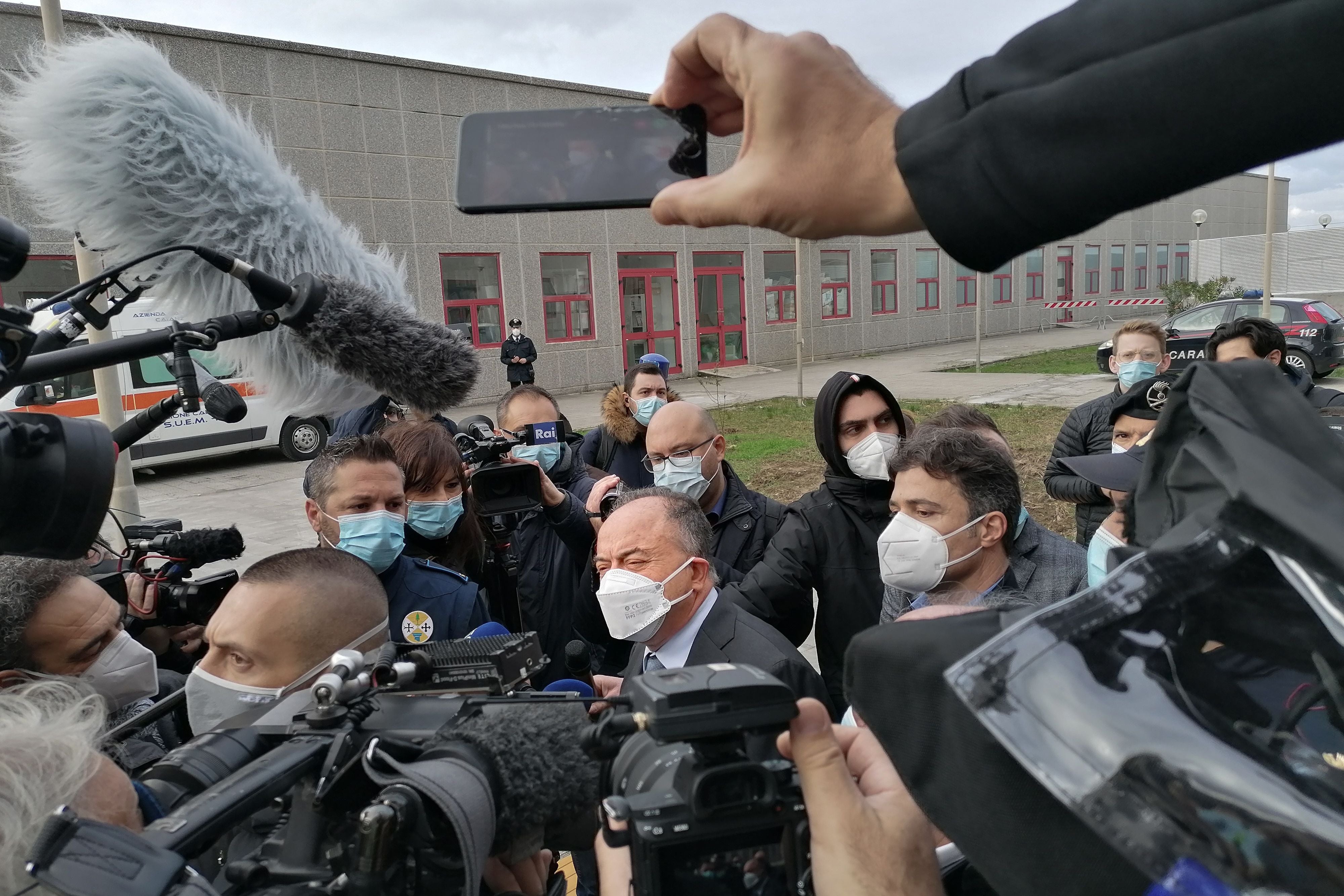‘Dead man walking’: Italy’s mafia mass-trial with painful echoes to deadly past
Before Gratteri’s war on Italy’s most powerful mafia, Falcone and Borsellino took on its most famous - Vincent Wood reports


Your support helps us to tell the story
From reproductive rights to climate change to Big Tech, The Independent is on the ground when the story is developing. Whether it's investigating the financials of Elon Musk's pro-Trump PAC or producing our latest documentary, 'The A Word', which shines a light on the American women fighting for reproductive rights, we know how important it is to parse out the facts from the messaging.
At such a critical moment in US history, we need reporters on the ground. Your donation allows us to keep sending journalists to speak to both sides of the story.
The Independent is trusted by Americans across the entire political spectrum. And unlike many other quality news outlets, we choose not to lock Americans out of our reporting and analysis with paywalls. We believe quality journalism should be available to everyone, paid for by those who can afford it.
Your support makes all the difference.Taking on the Italian mafia is a dangerous business - a fact Nicola Gratteri will have been well aware of as he walked into the courtroom on Wednesday, beginning the case against what could be the nation’s most powerful crime syndicate.
With 30 years experience working to hold the mafia to account, the prosecutor has spent half of his life under some form of protection. In 2005 an uncovered cache of weapons, including a rocket launcher and a kalashnikov, were believed to have been hoarded for his assassination. Ahead of his latest hearing, a bid to strike a major blow to the powerful Ndrangheta clan, mafiosi had already described him as ‘è un morto che cammina’ - a dead man walking.
The mass trial of 355 alleged mobsters and their associates is a moment in Italy’s modern history with painful echoes to its recent past. Before Gratteri’s war on the Ndrangheta came Giovanni Falcone and Paolo Borsellino, perhaps the most famous of the nation’s anti-mafia lawyers, and the men behind the largest criminal trial in modern history.
While the present trial in Calabria is set to take on the largest of the nation’s crime families, Falcone and Borsellino took on its most famous in their case against the Sicilian mafia. Dubbed the Maxi trial, the two years of hearings in a purpose built bunker in the 1980s were conducted with an understanding of its potential to incite carnage. In the early hours of one February morning alone, 100 men were led from Palermo’s L’Ucciardone prison through a series of tunnels and into the high security court room built into the grounds.
The facility was kitted out with 30 cages where they would observe the trial, while more than 3,000 police were deployed to the island province to offer protection. Back up judges were reportedly introduced in case Alfonso Giordano, who presided over the hearing, was murdered during the process.
Falcone and Borsellino’s work saw 2,665 years of prison time time handed down, a figure that does not include 19 life sentences to senior mob figures. 338 mafia members and their associates were convicted in the rare fight-back against organised crime groups that had managed to take root across institutions and territories. Even the head of the family, Salvatore Riina, was handed two life sentences in absentia as he evaded arrest.
But while effective, the trial was conducted with the understanding that those who crossed the mob faced immense risk to their lives and the safety of those around them. Journalists, officials and police were among the multiple murder charges counted in the case, with many targeted after having investigated Cosa Nostra.
After attempts to appeal the myriad charges against the mob failed in 1992, both Falcone and Borsellino were assassinated at the order of Riina - who continued to evade arrest until a year later. Falcone, 53, was killed with his wife and three police guards in the Capaci bombing on 23 May. Borsellino, 52, was killed alongside 5 officers in Palermo in the Via D’Amelio bombing two months later.
Even behind bars Riina continued to plot against those who threatened the power of the mob that he continued to operate from prison.
Over the last decade prosecutor Antonio Di Matteo became the most threatened man in the country when he alleged that the state and the mafia had negotiated an end a three year campaign of killings and bombings in the early 90s that included the deaths of the two Maxi trial prosecutors.
In 2013 the mob boss was caught on CCTV ordering the judge’s assassination. “This Di Matteo, he just won’t go”, he said observing the scale of his police protection had increased. “If we can, we kill him. It will be an execution like we used to have in Palermo”.
“Until recently I was never frightened,” the prosecutor told Al Jazeera at the time, “but since these latest threats I have felt fear. The fear is real. It’s there”.
While today Gratteri faces a different criminal enterprise to those faced by his predecessors, in a different region, the threat remains the same.
“I am being more careful than usual at present,” he said ahead of the case. ”I don’t go 10 metres (yards) without my armoured car. I haven’t been to a restaurant for more than 20 years and haven’t gone to the cinema for more than 30 years. I am always closed away. I eat in the office. My house is essentially a bunker. I have a good team of bodyguards.”
“I am trained to deal with fear”, he added. “You look death in the face, you rationalise death, otherwise you cannot carry on doing this job for so many years.”
With additional reporting by agencies


Join our commenting forum
Join thought-provoking conversations, follow other Independent readers and see their replies
Comments